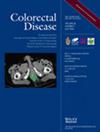The impact of surgeon speciality on surgical outcomes following colorectal resection for endometriosis
Abstract
Aim
An estimated 5%–25% of women with endometriosis have colorectal involvement. Colorectal resection is the most suitable surgical management for cases with large bowel infiltration. However, this method is also associated with the highest rate of postoperative complications. Data focusing on surgeon speciality and surgical outcomes are currently limited. The aim of this work was to evaluate the surgical characteristics and short-term postoperative outcomes following colorectal resection for endometriosis according to surgeon speciality.
Method
Using the National Surgical Quality Improvement Program (NSQIP) database, we included women who underwent colorectal resection for endometriosis between 2012 and 2020. Surgeries by general/colorectal surgeons were compared with those by gynaecological surgeons. The primary outcome was major complications according to the Clavien–Dindo classification.
Results
Among 745 colorectal resections, 82.3% were performed by general/colorectal surgeons and 17.7% by gynaecologists. Racial and ethnic characteristics differed between groups, but other baseline characteristics were comparable. General/colorectal surgeons performed fewer minimally invasive surgeries (29.9% vs. 58.3%, p < 0.001). General/colorectal surgery cases had lower rates of any postoperative complications and minor complications (14.8% vs. 29.5%, p < 0.001; 10.1% vs. 23.5%, p < 0.001), while major complication rates were similar. Multivariable regression showed no association between major complications and surgical speciality. In a propensity score-matched analysis, no significant differences were found between the two cohorts.
Conclusion
Most colorectal resections are performed by general/colorectal surgeons while a minimally invasive approach is more common among gynaecologists. There were no significant differences in outcomes between the two groups after adjusting for confounding variables. This suggests considering a multidisciplinary or dual surgery team approach to deep infiltrative endometriosis requiring bowel resection.

 求助内容:
求助内容: 应助结果提醒方式:
应助结果提醒方式:


